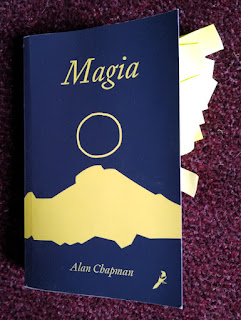Far Out In America, by Wolf-Dieter Storl
Storl’s memoir is of a highly resourceful wanderer, and covers the period usually referred to as ‘the 60s’...
Storl’s memoir gives some childhood background but mainly covers the years from the mid-1960s to 1970s, the period usually referred to as ‘the 60s’. It’s the tale of a highly resourceful wanderer. He’s a man who is good at surviving with no money, has great social skills and loves the natural world to the extent he’d rather sleep in a tree than in a student dormitory.
Storl’s love of the living world is one of his main themes. He takes the cutting down of trees personally, and as a paper boy he shoots out streetlights with an airgun because of the insects dying on them. His account of the horror of having to kill and dissect frogs reminds me of my own days as a biology student, cutting the tongues out of limpets to look at a distribution on a beach, partaking in the destruction of life just to learn a minor survey technique.
His love of the world goes even further, into reverence: he finds the moon landing of 1969 sacrilegious; whereas I loved it, was thrilled by the vistas it seemed to open up.
The book is threaded through with political musings, but he comes to politics as an outsider, critical of both left and right. His family having lived through the communist occupation of East Germany, he got a full sense of the misery and pettiness of the communist state. Visiting his grandfather, the old man tells a story of when the Nazis insisted on his hanging a flag, so he hung the smallest one he could. When the communists took over and demanded a red flag, he simply cut the swastika circle out and sewed a piece of red cloth over the hole, saying ‘They’re all the same scoundrels anyway!’
Being German, he understands the prejudice a lot of Americans have against anyone they can call different. He paints a picture of a divided nation, racked by fear and shame over racism. He describes going to a black club for the music, and being present when the police raid it, and sneer at him as a ‘nigger lover’.
He expresses his outsider status through an anthropological view of the tribes of the USA. His hitchhiking brings into his life people from various communities, such as the hillbillies prompted by Jesus to pick him up. He not only hitch-hikes everywhere, but also rides railroad boxcars and learns about that life from the old hoboes. He smells the fear and hate on the air, writing: ‘At that time, just drinking red wine was considered subversive.’
He goes to live with a community of backwoods spiritualists and also studies them anthropologically, ending up feeling guilty for treating them like that. He is hoist on the dilemma of a scientist with ethics.
The strict, uptight, limiting christianity of his upbringing is eventually worn down, revealing an actual layer of faith and a capacity for ecstatic experience. He takes acid before the ‘Acid Culture’ exists, while it is basically unknown and mysterious, and is captivated by the transformational promise of LSD: ‘For a long time, we thought that Hoffmann’s elixir could solve all the problems of the world.’, via the experience of universal love. Which didn’t happen, of course. Not everybody got transformed. This is the source of much of the disappointment of his, and my, generation.
He partners up with Faye, a hillbilly woman and learns about that highly independent, anti-government culture. She has a spirit helper, who finds lost things, which is a blow to Storl’s youthful naive-scientism. He recalls experiences of magic, such as when he has a close encounter with a bear and later learns much about healing plants, and a spontaneous contact with the spirit of his grandmother, telling him he’s with the wrong woman.
He has a very interesting take on the rise of the youth culture of that era, showing how US government programmes contributed to some features of it. He gets chosen for an elite team of students. The idea is, they propagandize third world countries before the communists can manage it. The US Government realized in the 1950s that it was ‘ruling over a worldwide empire but had no idea who these peoples were that they were dealing with. So cultural anthropologists and ethnologists became very important and, since they were in short supply, programs were developed to churn them out quickly.’
At the same time, young, idealistic men and women were joining the Peace Corps to help the poor of the Third World and ‘win heart and minds’ for America. This plan backfired. These youngsters had got acquainted with other cultures ‘and experienced how much more human warmth they possessed than the emotionally cold suburbs where they themselves had grown up.’ Many of the returning Peace Corps workers became hippies or radicals.
He eventually says goodbye to his first academic discipline: ‘Western anthropology primarily served the colonial powers, helping them to better understand the conquered peoples, so that the latter could be subjugated and exploited more efficiently.’
Storl has lived and still lives through some very interesting times. In this book, he bears witness to the end of a previous era of rapid cultural change in the West. His anthropological view of the famous Woodstock festival is that it is unsurprising, another example of rootless American citizens getting together for ‘revitalization movements’. That era was end-bracketed by the Altamont murder and the Manson bloodbath, killing off the hippie dream, which mutated into the violent radicalism of the 1970s.
This is an entertaining, well-written account by an outsider, an intelligent, sceptical person who always looks at the world through more than one lens. I for one hope we haven’t stopped producing intelligent, learned freaks who refuse to sign up to ready-made belief systems of any stripe, but keep on thinking.




Comments
Post a Comment